| |
Basement Waterproofing Specialist.
BS 8102:2022 says, at 4.2, "A waterproofing specialist should be appointed as part of the design team so that an integrated waterproofing solution is created."
"Alternatively, a waterproofing specialist may develop an outline design, which is later adopted as part of a client's requirements and developed by a suitably experienced and qualified waterproofing specialist as a Contractor's Designed Portion."
This second option suits me a lot more than the first.
My outline design will prevent all leaks. It is all lower down this page, and repeated near the top of my page for architects as well. It needs to be copied into their drawing notes.
In case you go out to tender, this outline design needs to be included in the tender documents. If it isn't, you will have a row with your contractor and lose because without a suitable outline design they are fully justified leaving you leaks.
|
|
|
The Building Safety Act 2022 (introduced here) includes a requirement to get signed off, in advance, what materials, methodology, and whose workmanship are acceptable to your building control body. The building regulation C2 states that it is the walls, floors and roof of a building that should protect the building and persons inside from harmful effects of moisture from the ground.
If your architect, building control, or insurer, want you to use a CSSW who covers over leaks, You, the client, is breaking the law not complying with C2, not them.
Beware. Re-read the first paragraph above, 4.2.
-
Does the waterproofing specialist work for the supplier, with pressure from sales to sell extras and all for as much money as possible?
-
Does the waterproofing specialist work for the contractor, interested in making the contractor more money so they get their business next time?
-
Does the waterproofing specialist work for the client, with the client's best interests at heart, as I do?
-
Think also about what if the contractor has to be sacked for non-compliance and clearly leaving leaks?
-
Is the specialist yours and you keep him, or is he theirs and he left with them putting you in breach of the agreement with the building control body?
-
And what if the contractor paid the waterproofing specialist slowly, or not at all, and any Insurance Backed Guarantee was refused?
I have best suited clients who will live in the new home themselves. Those who don't want the problems contractors leave hidden. These have tended to be self-builders trying to make their savings stretch.
Not for them clearing up after a team of sub-contractors, who took unfair advantage of no one watching, and then weeks if not months of spending a fortune putting right the short cuts taken.
Or, more usually, £20,000 to £50,000 on internal drainage hiding it all. But as the leaks they left got worse, so these systems failed.
This has been the norm for 99.9% of developers. Cover the work over asap and get on with fitting out the basement. As long as the structural warranty was secure and the house could go on the market, they did not care about anything else. But this was the attitude with the Grenfell Tower. This is the attitude that is now not just illegal, building control will not issue a completion certificate.
The changes since the Grenfell Tower fire are another attempt at making different parties to a project be less adversarial. The new regime is written into law this time, and it requires them to work together.
I remember, years ago, the conclusion of the Latham report (1996), that sub-contractors and main contractors trying to rip each other off was bad for the client.
That got worse, not better. Then there was the Grenfell Tower fire. So many parties fell short of what was good for the people who lived there.
Entering into contracts tempts cheating. each party trying to do better out of the deal than the other.
For your project to succeed, you need a team that trust each other without either fearing quality or payment.
I think I am the ideal candidate to be
-
Your waterproofing specialist
-
Your site engineer
-
Your clerk of works
You need a waterproofing strategy that will work for least cost. That means Right First Time. No leaks. No products other than waterproof concrete and additional steel to prevent cracking.
You need a site engineer paid by the client to be on site throughout all the important work to explain and demonstrate how to achieve the waterproofing strategy.
You need a clerk of works who inspects at every stage and at the end before the contractor gets paid stage payments.
Or employ me.
Unlike anyone else,
-
I will provide your design team with the waterproofing strategy and methodology. It's here, lower down this page;
-
I can get the design, methodology, and workforce approved by your building control body;
-
I can meet with prospective contractors and team members and explain why working under my supervision is good for them.
-
I can be on site most of the time (just not when they are clearing up) and show them how, as well as supervising and inspecting as we go along;
-
I can sign off work to date before stage payments are made;
-
Later, after the whole house is weathertight, I will carry out the preliminary inspection and show the workforce how to carry out any repairs, should any leaks be found;
-
I will carry out the inspection with your building control body and get your basement structure signed off.
RIGHT FIRST TIME SAVES THE MOST MONEY.
|
|
More from BS8102:2022, section "4.2 Design team.
The advice of a geotechnical specialist should be sought on the geology and hydrogeology, the external drainage options and groundwater conditions.
A Waterproofing Specialist should be appointed as part of the design team so that an integrated waterproofing solution is created. The waterproofing specialist should:
a) be suitably qualified and experienced, commensurate with the type and size of the proposed project;
b) be capable of devising solutions that accommodate the various project constraints and needs with an understanding of construction forms and sequencing; and
c) provide the design team with information and guidance that assists with and influences the design, installation and future maintenance of the waterproofed structure.
If the RIBA stages are used, a waterproofing specialist should be appointed before the technical design stage at the latest."
|
Please note. The old go-to, a CSSW Surveyor, is not mentioned anywhere within the Standard. They don't prevent water getting through the structure. They don't comply with the regulation for a new build.
From 2004 to 2013 I removed or remedied every cause of leak through a new build domestic basement. Not a drip through or over any structure built this way by a self-builder since 2013.
I review BS 8102:2022 here
I prevent
-
Tapes and strips in joints, labour and materials, and fixing leaks later, because they do not work.
-
Formwork hire, cleaning charges, replacement charges, delivery and collection.
-
Filling tie bar holes
-
Generally waterproofing the surface of sound, but not waterproof, concrete.
-
Concrete kicker repair (Impossible, therefore a lot of money before it is decided they need cutting out and replacing).
-
Filling honeycombing in walls and making sure the repairs are waterproof.
-
Internal drainage system.
-
No need to completely demolish and rebuild properly. (BS8102:2022. Note 11.1.A.2. Complete replacement if repairs not possible.)
-
No breach of building regulation C2. No punishments. No claims for damages.
The costs of 1 to 7 alone, ignoring the potential costs of 8 and 9,
Easily at least £55,000 for most projects.
|
Dutyholder duties and competence.
More here. Same link as above.
I believe that a new basement project needs the specialist who has the confidence of the building control body and will remain if the contractor gets sacked.
For the good of the project and the client, I need to be paid by the client without giving credit; and the client must not apply pressure to cut costs - which always costs the client more in the end, anyway.
Leave me to do my best and the client will get the best outcome possible. As many self-builders and small developers would testify going back years.
The new rules require sign-off by the building control body at the end.
This will need to be some months after the basement structure is complete. The house structure needs to be weathertight and the basement cleaned and dried by the contractor before a preliminary inspection, after heavy rain, by the waterproofing specialist. Then a final inspection to satisfy the building control body.
Then, and only then, might the inside be painted with waterproof paint.
Without all the above you don't get your completion certificate at the end.
I will arrange and sign
-
Me as your waterproofing specialist directing your architect and structural engineer to make changes so that your basement can be waterproof.
-
My choosing all the materials so that your basement can be waterproof (which is usually only the waterproof concrete mix and my alternative to tie bar holes).
-
My getting the approval to start from your building control body.
-
Provide you with my written guarantee that your basement structure will not visibly leak - ever (but only after it successfully passes inspection just after heavy rain).
-
Sign off at the end of the basement waterproofing phase. I go through the inspection regime again below.
This means LESS work and LESS responsibility for your architect. Also, it is mostly new work, now required, that your architect could not do.
If my methods and my competence are agreed with building control, you can't change anything. In particular, you can't change me without my signing where we got to and you starting the whole process of agreement with everyone else again. If you do anything different to what building control expect, or you don't pay me, obviously I will not sign at the end.
Some of my credentials.
Someone at Yorkshire Water has thanked me because they were tasked with finding a way to stop their new water storage tanks being built to leak. The person knew BS8007 inside out, but he credited me and my web site for giving him the starting point and the right direction to find a solution for the future.
Other people have read my work, learned from it and referenced it. I'm told that I have been referenced in over 800 academic papers.
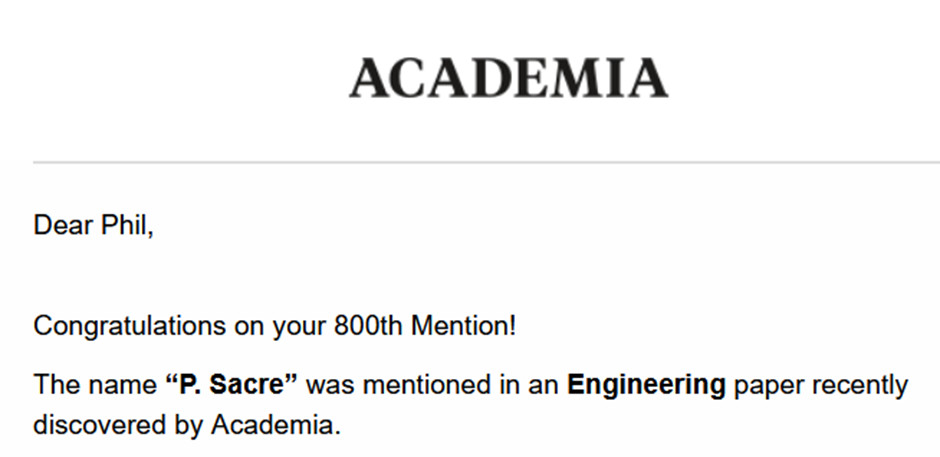
My outline waterproofing specification, to be added as architectural notes on drawings before the tender stage.
-
No internal drainage system allowed.
-
No breach of building regulation C2 allowed.
-
Waterproof concrete, proven to BS EN 12390 part 8 to be waterproof, throughout the basement structure. (Note. it is sufficient to have proof that the concrete supplied is basically the same as concrete that passed this laboratory test earlier).
-
The structural engineer needs to specify extra steel reinforcement capable of restricting crack widths to less than 0.2mm, assuming the concrete will contain 350kgs of pure OPC cement per m³. Which means it will get hot while curing. Advice on the page for engineers at www.basementexpert.co.uk/basement structural engineer.htm.
-
All waterproof concrete pours to be supervised by Phillip Sacre of www.basementexpert.co.uk.
Email philsacre@basementexpert.co.uk
-
No concrete kickers. Many kickerless systems and options are available.
-
No tapes or strips in joints. Waterproof concrete joints to be scabbled, cleaned, and kept clean until the next concrete arrives. (From BS8007)
-
Formwork formed to a maximum of 2m high before being filled almost to the top with concrete.
-
No stop ends except at wall ends and openings.
-
No tie bar holes. They only leave holes in Europe. Many other options are available. FRP threaded rods from www.basementexpert.co.uk are preferred.
-
All concrete to be properly placed, compacted, and cured. No formwork to be loosened, much less removed, for 72 hours. Concrete surfaces prevented from completely drying out for 36 hours.
-
Any and all leaks, prior to final sign-off, to be fixed by the responsible party who made, left, or allowed, them.
-
Nothing is allowed to cover any part of the new basement internally before final inspection and sign-off.
-
If any leak proves to be impossible for the responsible party to repair, then BS8102:2022, clause 11.1.A.2 applies. Complete replacement if repairs not possible.
-
The employer of the party building the basement structure, will withhold payment commensurate with the likely costs of meeting this specification, if it is reasonable to expect the builder of the basement structure to fail to meet any part of this specification.
The Inspection Regime.
-
Leave the completed basement structure uncovered by anything on the inside anywhere, not a cable, not a pipe, not a batten.
-
Continue with the rest of the house build until the roof is on, the windows are in, and the entire structure is weathertight.
-
Only then, clean and dry the basement and keep it ventilated to prevent condensation.
-
Inspect the basement structure inside carefully for any sign of leaking water after a period of heavy rain.
-
Fix any visible ingress of water. Phil Sacre of www.basementexpert.co.uk can help with this, to show how to chisel out the site of any leak and fill it in 3 layers with waterproof repair mortar.
-
Re-inspect and fix, as above, until the basement is known not to leak.
-
Arrange for the final sign-off inspection after a period of heavy rain.
-
Only then, involve Phil Sacre again to train and supervise the proper way to apply waterproof bitumen paint.
-
Only then, begin fitting out the inside of the basement - without causing a leak or damaging the waterproof paint.
|
Back to the Basement Building Questions Answered menu.
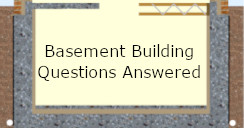
|
Forward to the Basement Building Construction Manual menu.
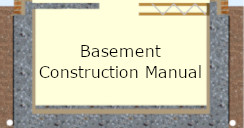
|
For a fixed fee of £199 I will answer all your questions by email. More details here.

|
Previous Page
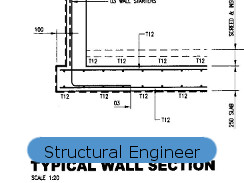
|
|
Next Page
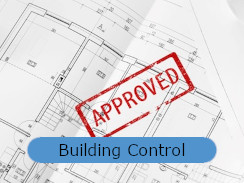
|
|
The Page After That
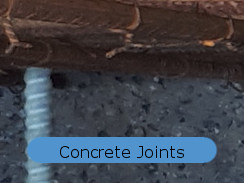
|
|
|
|

